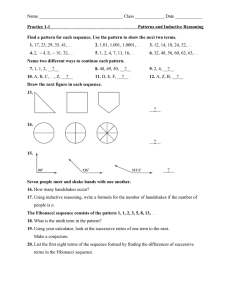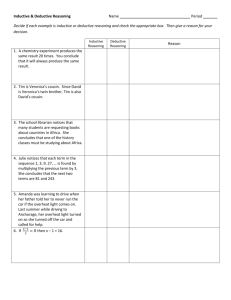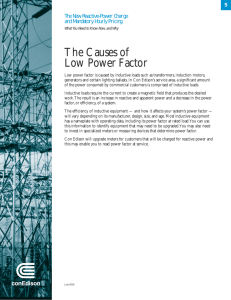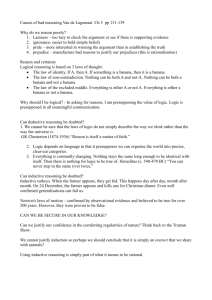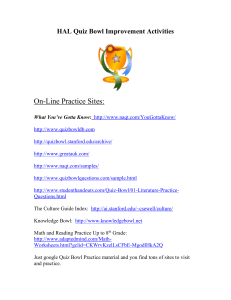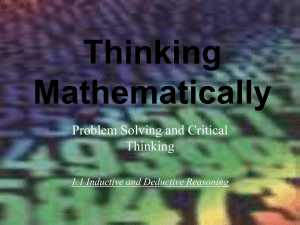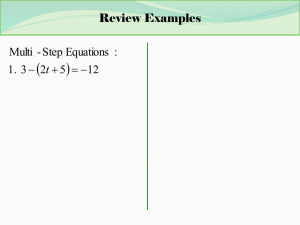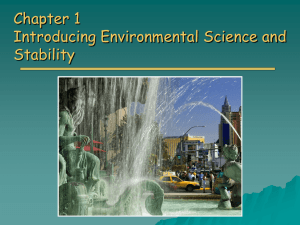The Limitations of Observation
advertisement
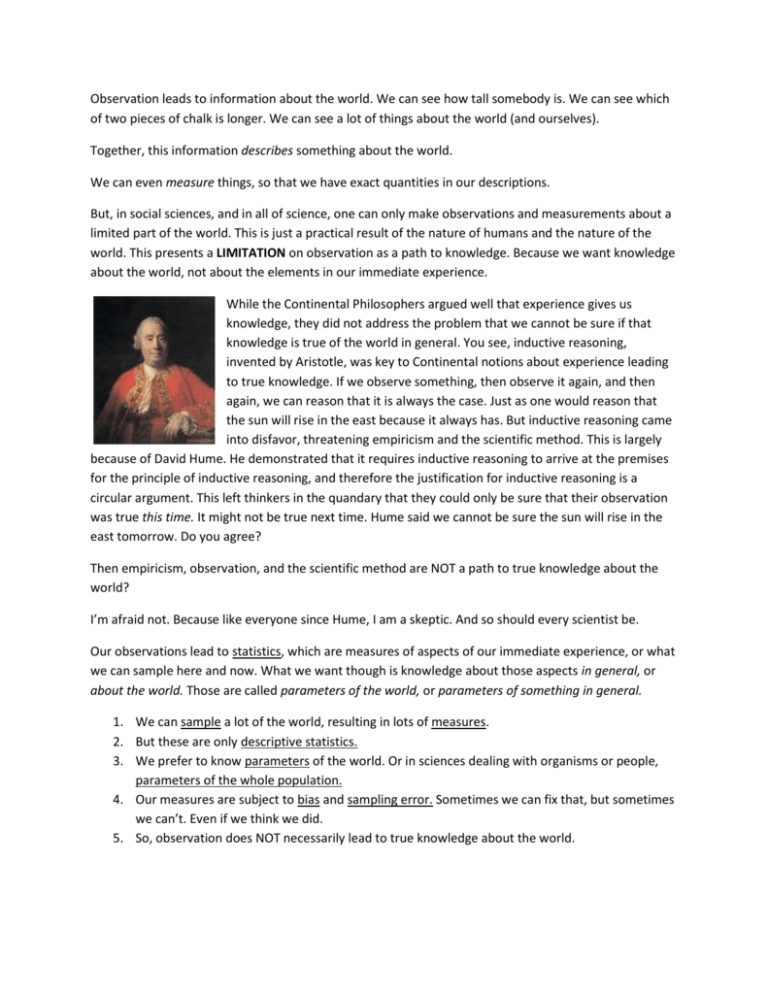
Observation leads to information about the world. We can see how tall somebody is. We can see which of two pieces of chalk is longer. We can see a lot of things about the world (and ourselves). Together, this information describes something about the world. We can even measure things, so that we have exact quantities in our descriptions. But, in social sciences, and in all of science, one can only make observations and measurements about a limited part of the world. This is just a practical result of the nature of humans and the nature of the world. This presents a LIMITATION on observation as a path to knowledge. Because we want knowledge about the world, not about the elements in our immediate experience. While the Continental Philosophers argued well that experience gives us knowledge, they did not address the problem that we cannot be sure if that knowledge is true of the world in general. You see, inductive reasoning, invented by Aristotle, was key to Continental notions about experience leading to true knowledge. If we observe something, then observe it again, and then again, we can reason that it is always the case. Just as one would reason that the sun will rise in the east because it always has. But inductive reasoning came into disfavor, threatening empiricism and the scientific method. This is largely because of David Hume. He demonstrated that it requires inductive reasoning to arrive at the premises for the principle of inductive reasoning, and therefore the justification for inductive reasoning is a circular argument. This left thinkers in the quandary that they could only be sure that their observation was true this time. It might not be true next time. Hume said we cannot be sure the sun will rise in the east tomorrow. Do you agree? Then empiricism, observation, and the scientific method are NOT a path to true knowledge about the world? I’m afraid not. Because like everyone since Hume, I am a skeptic. And so should every scientist be. Our observations lead to statistics, which are measures of aspects of our immediate experience, or what we can sample here and now. What we want though is knowledge about those aspects in general, or about the world. Those are called parameters of the world, or parameters of something in general. 1. We can sample a lot of the world, resulting in lots of measures. 2. But these are only descriptive statistics. 3. We prefer to know parameters of the world. Or in sciences dealing with organisms or people, parameters of the whole population. 4. Our measures are subject to bias and sampling error. Sometimes we can fix that, but sometimes we can’t. Even if we think we did. 5. So, observation does NOT necessarily lead to true knowledge about the world. 6. We have to settle for the next best thing: showing that an observation made during an experiment is unlikely to have happened by chance, so is likely a real phenomenon in the world.
